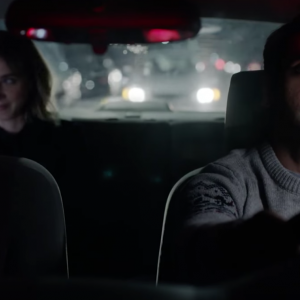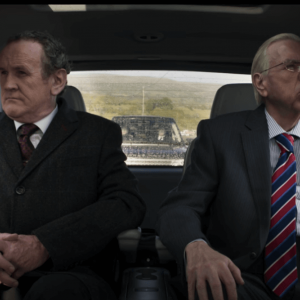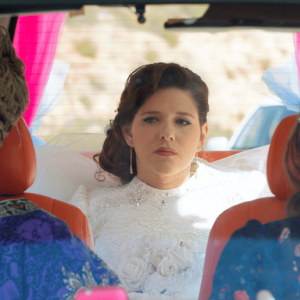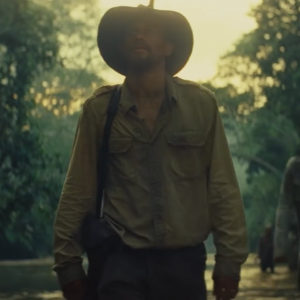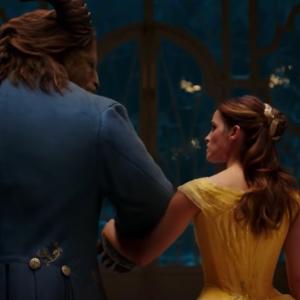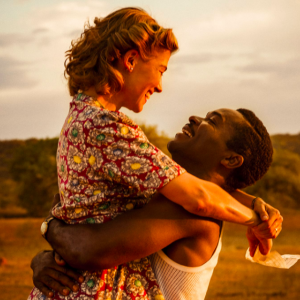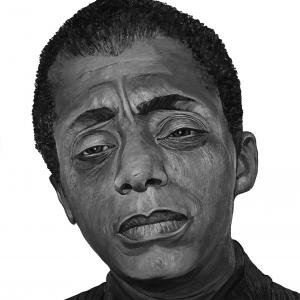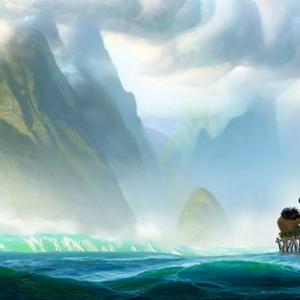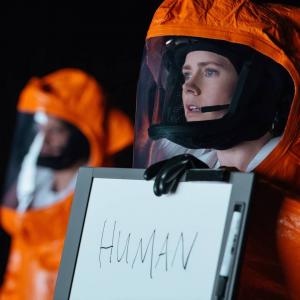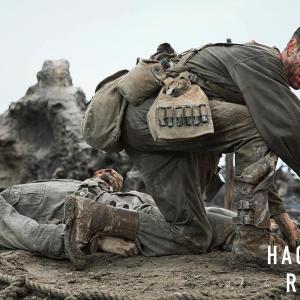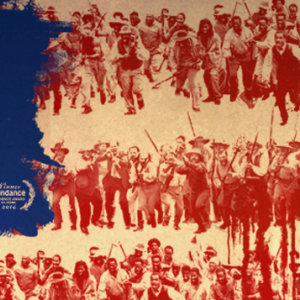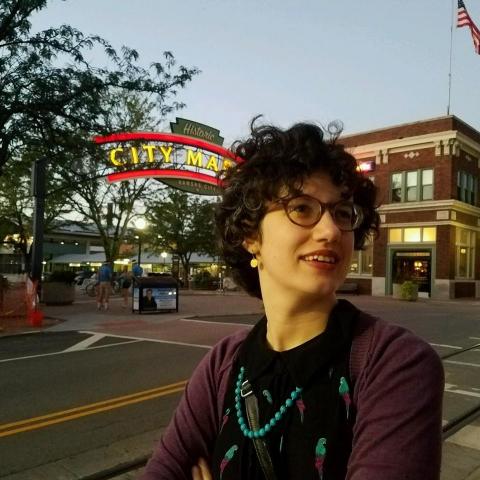
Abby Olcese (@abbyolcese) has been many things — a campus ministry leader at the University of Kansas, an English teacher in Prague, and an advertising assistant at Sojourners. These days, she’s a freelance writer based in Kansas.
Raised on a diet of Narnia, Bob Dylan records and Terry Gilliam movies, Abby is drawn to the weird, the nerdy, and the profoundly artsy corners of popular culture. She loves sharing this knowledge with others by writing about interesting new releases as well as lesser-known gems.
Abby is also passionate about the intersection of faith, social responsibility, and culture. She believes in the power of art to spark important conversations, inspire social change, and help people to better understand life in the kingdom of God.
When she’s not watching movies or writing things down, you can usually find Abby reading comic books or perusing the selection at her local record store.
Posts By This Author
Why ‘The Big Sick’ Is the Romantic Comedy You Need Right Now
But really, the best performance in the film belongs to Nanjiani —no surprise, since it’s partly his own story. The affection he feels for his parents makes him afraid to upset them, but to really come into his own as a person, and as a comedian, he has to be honest with them about what he wants for his life.
Northern Ireland, War, and the Power of Unlikely Political Friendships
Q&A with ‘The Journey’ Director Nick Hamm
Olcese: In the creation of the film, did you find yourself sympathizing with one character or the other? Was one character easier to make more sympathetic?
Hamm: No. I couldn’t. I absolutely wanted to make the film balanced and fair to both sides. That was completely essential. Don’t forget, both these figures were not liked in Europe before they became statesmen. They were both radical. McGuinness was an ex-member of the IRA, Paisley was a firebrand preacher on the right. These were two men who were pretty much despised universally outside of their own base. It’s like The Odd Couple in the back of a car. I think what the humanity of that is when you take all that away, when you remove from the politician the artifice, and you get a chance to look at them as people, and I think that’s what happens in the movie.
‘The Journey’ Reminds Us That Peace Can Be Possible In Politics
Unfortunately, the script, by writer Colin Bateman often tends toward the bland, with the exception of a couple of pivotal scenes. Both Paisley and McGuinness were big, powerful personalities, with many facets to explore. The script, however, takes what could be a truly interesting exploration of two dynamic characters, and often reduces them to a pair of old men arguing in the back of a car. There are some standout moments where beliefs are challenged and moments of real emotional honesty are reached, but it takes some waiting to get there.
‘Baby Driver’ Is Another Film About Spectacle, Not Substance
The new film Baby Driver is a movie that expresses joy through art, specifically music. The action film from director Edgar Wright connects the joy of listening to a favorite song to the way those musical rhythms color our everyday lives. At its best, the film is a celebration of joy in creativity that bleeds over into a joy in creation itself. It struggles, however, to turn that aesthetic delight into something of substance.
Religious Movies Usually Feel Fake. ‘The Wedding Plan’ Is Different
Film critic Alissa Wilkinson writes that “Christian theology is rich and ... full of imagination that's broad enough to take up residence among all kinds of human cultures. It contains within itself the idea that art exists as a good unto itself, not just a utilitarian vehicle for messages.” The Wedding Plan is a prime example of this kind of religious art. It’s a message movie, a window into a culture that makes the specific and personal universally relatable, and still manages to tell a good story.
How ‘Wonder Woman’ Does Not Placate Audiences
At first glance, the meaning behind this tagline for Wonder Woman feels obvious, it is the next step on the DC franchise road to November’s Justice League movie. But of course, there’s more to it than that. Wonder Woman marks a feminist milestone, too, one that feels like artistic justice: it’s the first major superhero movie to feature a female hero, and the first to use a female director, Patty Jenkins.
‘War Machine’ Shows We Cannot Satirize Combat
The biggest issue War Machine faces is that satire seems to be the wrong track for the movie to take. War and soldiers are difficult subjects to make funny. The best that writer-director Michôd can manage is to provide the stars — like Pitt and his military cohort — with a couple of strange quirks to color their performances. Sometimes these characterizations feel lazy, other times like the actors are trying too hard. The humor, when it’s there, feels forced.
‘Guardians of the Galaxy Vol 2.’ Has Some Growing Up to Do
In Guardians of the Galaxy Vol. 2, out this weekend, Peter Quill (Chris Pratt), Gamora (Zoe Saldana), Drax (Dave Bautista), Rocket, (Bradley Cooper) and Groot, (Vin Diesel) are still learning lessons in openness and humility. But oddly, the film they’re in needs help maintaining emotional honesty, too. Where the first movie kept a fine balance of pathos and jokes, the second Guardians film is almost caustically cynical. The film is so preoccupied with witty banter that it misses nearly every opportunity to plumb the depths of the themes it presents, until finally pulling it together at the very end.
‘The Lost City of Z’ and the Elusiveness of Perfection
As Christians in an unjust world, it’s easy for us to long for escape, for a “pure, uncorrupted” place that makes sense to us — that is, our ideas of heaven. But while it’s important to desire that perfection, we ourselves can’t actually attain it, as true comprehension of heaven lies beyond earthly grasp. If getting to heaven is the only thing we care about, we’re missing the point.
‘Colossal:’ A Monster Movie About Our Own Personal Demons

Image via "Colossal"/Facebook
Colossal isn’t just a movie about a woman overcoming her bad habits. It’s about a woman discovering her own power and agency, and the refusal of the men in her life to accept that agency.
‘Beauty and the Beast’ Remains Enchanted — and Problematic
The updated, live-action version of the film, out this weekend, manages to make the development of its central romance a little more redemptive. It’s mainly a recreation of the original film, but manages to squeeze in some additional context that make its characters more fully-rounded, and their circumstances more understandable. But while this progressive package [complete with a more diverse cast and LGBTQ-friendly supporting characters] is a bit easier to swallow, the core problem of the story still remains.
Can Love Triumph Over Racism?
Like Hidden Figures before it, the post-World War II historical drama A United Kingdom is a great and worthy story, told poorly. The real-life account of the marriage between Londoner Ruth Williams (Rosamund Pike) and Seretse Khama (David Oyelowo), the ruler of Beuchanaland (now Botswana), is an incredible story about an interracial relationship with world-changing political implications. Unfortunately, the film does its subjects little credit, suffering from directing and writing choices that keep it from achieving its potential.
'I Am Not Your Negro' Is Required Viewing
Though the words were written decades ago, it’s both astounding and shameful that Baldwin’s writings explain the past yet sound like they could have been published last week. Peck tackles Baldwin’s writing by topic, from American identity to stereotypes and representation in popular culture, alienation from a church Baldwin claims is refusing to practice selfless love, and white denial of the brutality faced by civil rights protesters.
'Hidden Figures' Tells a Heroic Story, But Not the One They Deserve
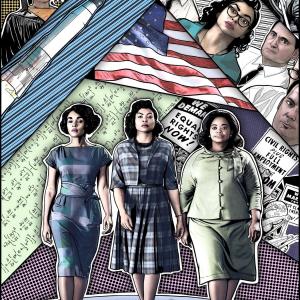
Image via "Hidden Figures"/Facebook.
Hidden Figures is a perfectly okay film in the feel-good crowd pleaser mold. But as important as the stories of these three often overlooked women are, it feels as if not enough time, effort, or vision were really put into the film to make it stand out. It’s not a movie that will offend anyone’s sensibilities. But it’s unlikely that audiences will be able to recall anything significant about it a year from now. These extraordinary women deserve better.
'Rogue One' Adds a Dark, Sobering Chapter to Ongoing 'Wars'
There have been battles throughout the Star Wars films, from the prequels through the original trilogy, and beyond — but where the other films have been mainly swashbuckling escapist fantasy, Rogue One is about the gritty reality of battle on the ground.
Without spoiling it, Rogue One’s story includes a lot of darkness. There are still thrilling heroics, stirring music, and fun characters. But there’s a certain weight here that hasn’t necessarily been present in most of the other films. And that, plus the film’s talented, diverse cast, makes Rogue One a truly unique twist on the familiar format.
'La La Land' Is Dreamy, but a Film in the Wrong Year
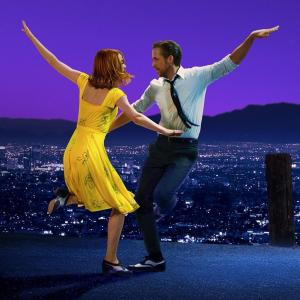
Image via La La Land/Facebook.
Mia's and Sebastian's problems are, at best, first-world problems. Not only do they make the story less interesting, they make the characters seem petty as well. There are plenty of people living in L.A. with perfectly reasonable dreams whose lives are much harder than Mia and Sebastian’s, but still make it work. Some of their stories even make great movies, such as 2015’s trans buddy comedy Tangerine.
'Moana' Is the Healthy, Hopeful Picture of Leadership We Need
Telling stories that encompass the scope of experience help us understand those whose experiences are different from our own. Amidst current racist, sexist political rhetoric and threats of more to come, we’re going to need more stories that bridge that gap.
Trouble Communicating With Your Loved Ones This Thanksgiving? Take Them to 'Arrival'
Arrival is an intricate, beautifully-realized story reminding us that, especially at a moment of great clamor in our society, it’s important not just to talk, but to listen to each other — and not just to listen, but to listen with intentionality and compassion.
A Missed Opportunity in 'Hacksaw Ridge'
Hacksaw Ridge is an intensely violent film about pacifism. That may seem like an oxymoron, but here, context is everything. Mel Gibson’s World War II film is about the pacifism of real-life conscientious objector Desmond Doss. Doss was a Seventh-day Adventist who served as an army medic and saved the lives of his fellow soldiers without once picking up a gun.
The Brutal Truth of 'The Birth of a Nation'
An early scene in Nate Parker’s The Birth of a Nation depicts the wedding of two slaves. As the bride and groom dance joyfully with each other in the midst of a circle of their fellow slaves, the group around them sings: “You got a right, you got a right, you got a right to the tree of life.”
Several scenes later, Nina Simone’s Strange Fruit plays as the camera pans out slowly to show a massive live oak tree full of lynched black bodies. It’s a nauseating image, and the two scenes draw a heartbreaking connection: In this world, oppressed people claiming their right to the tree of life can be a death sentence.
